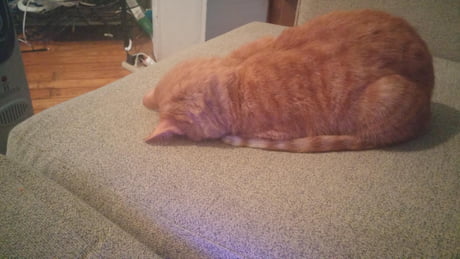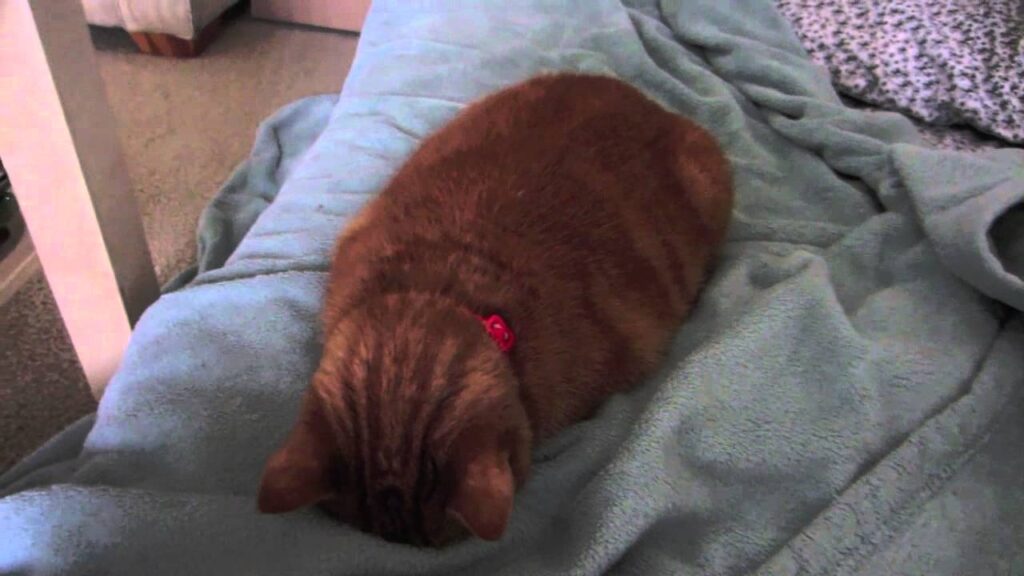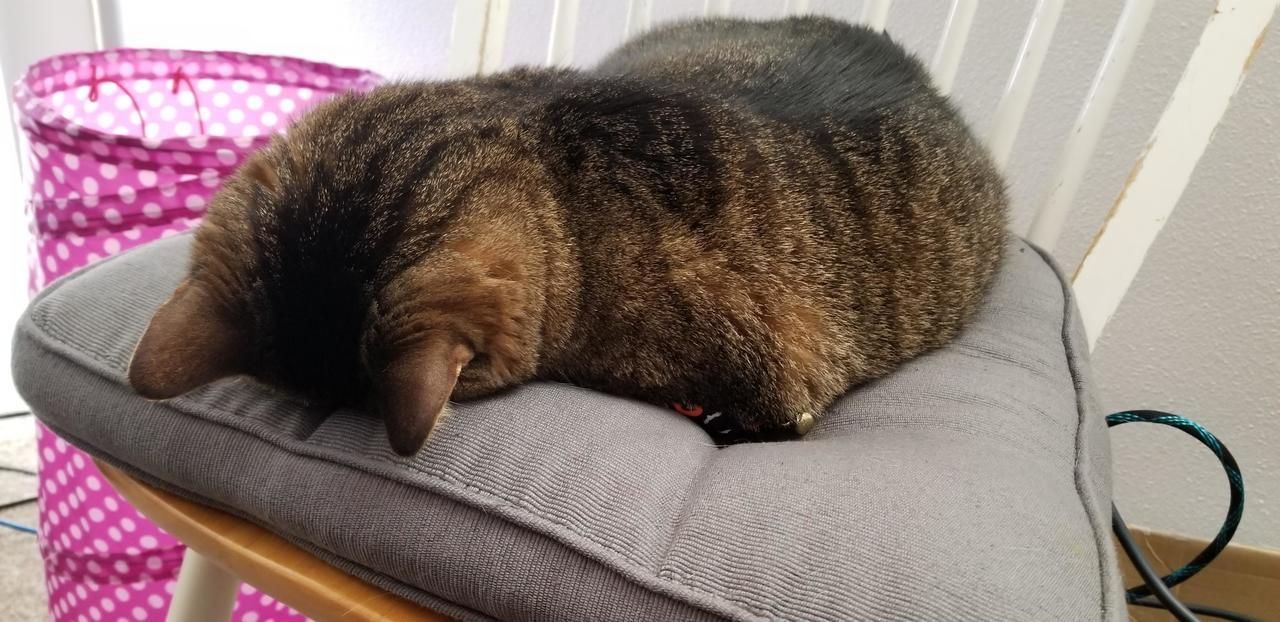From lying flat on their backs to curling up like balls and sleeping with the head facing the floor, cats can sleep in virtually any position. These gorgeous little creatures are so flexible, peaceful, and content during naptime and life in general. If you’ve ever walked in on your cat sleeping on the belly with the head touching down, you must have been freaked out of your mind. Surely, the position looks unsafe and uncomfortable! Follow through as we talk about this behavior and find out whether it should be of any concern to you or not.
Normal Cat Behavior

The vast majority of kitties sleep curled up in a ball. In this position, the chin touches the chest while the tail stays tucked behind them. This posture helps the cat to retain her body heat. She may also cover her face with her paws for the same reason of minimizing heat loss.
Part of feline normal behavior is also sleeping with the head down, a phenomenon called head pressing. Basically, this is where the cat assumes her usual sitting position except this time, she will press her head against the floor, bed, or whatever she’s lying on. This is pretty okay for many cats. It aids in relaxation and comfort.
Some kitties love to sleep this way to mark their territory. Their cheeks have scent glands. As they press their heads against the floor or bed, they mark the territory. This is why your cat loves rubbing her head against your feet. She’s telling the whole cat world that you are hers. Sleeping with the head facing down also hides the nose—an organ that gets cold very fast.
When Should You Worry?

While head pressing is normal cat behavior, it can also signify trouble as far as health is concerned. Ideally, if your little panther only assumes the position of head pressing during naptimes only and eats/plays well, there’s no cause to worry. However, if he presses his head against other surfaces even when he’s awake, this can signify a health issue. The cat will often appear as though they are not aware of what is going on. Her posture will be tensed and unrelaxed. All these points to a number of issues including the following:
- Liver Failure: Also called hepatic failure, this is a condition where the liver loses 70% or more of its function. Can be caused by poor flow of fluids, infections, hypoxia (inability to take in oxygen naturally), heat exposure, and the presence of toxic chemicals.
- Brain Tumor: Although rare, cats can have abnormal growth in their brain cells, also called brain tumors. It can be benign or malignant (cancerous). The most common symptoms of a brain tumor in cats is head pressing and seizures. Most cats suffer tumors after their fifth year of life.
- Exposure to Toxins: A cat can be poisoned through direct ingestion of harmful substances, ingestion of poisoned meat, or grooming contaminated fur. Sometimes they absorb toxins via the skin or by inhalation. While toxins primarily cause gastrointestinal and respiratory issues, they can also lead to neurological ailments such as incoordination, lethargy, seizures, and coma. Head pressing is also a common symptom.
- Bacteria, Fungal, Or Viral Infections: There are myriad infections that can affect your kitty and her organs. Infectious diseases like rabies can trigger your cat to press her head against a wall. Fungal and parasitic infections of the ear, nose, mouth, and other parts of the body can also cause the behavior as well.
- Stroke: This is characterized by a sudden decrease of blood supply to the brain or bleeding of the brain. Common signs of stroke in cats include general or partial seizures, reduced facial movement, temporary blindness, head pressing, and walking in circles.
- Metabolic Disorders: When a cat has low blood sugar or glucose, a condition known as hypoglycemia, her body may end up with extremely low energy levels. This condition has been known to cause feline head pressing.
Additional Symptoms
We have established that a kitty that sleeps with her head pressed down may be sick. Besides the aforementioned symptoms, here are other things to look out for:
- Decreased appetite
- Loss of consciousness
- Eye changes
- Falling
- Walking in one direction
- Compulsive repetitive behaviors
- Lethargy
- Seizures
- Head tilt
- Incoordination when walking
- Restlessness
- Excessive sleep
- Walking into walls
- Weakness
- Stuporous behavior.
If you think that your cat’s head down sleeping position is worrying, your best bet is to bring her to the vet. They will carry out a plethora of tests to determine the underlying condition then administer the right treatment.
Although it is normal for cats to sleep with their heads pressing against the floor, it can also indicate a health problem. Perhaps she has a condition or infection that affects her brain. For her safety, get medical help before it’s too late.

Hi! I am Eleanor Price. I started this website after my cat, Louie, almost died from a case of botulism (a type of food poisoning often caused by bacteria that grow on food items). Turned out that my cat’s diet was the problem. I have made it my duty to provide the best information and recommendations about everything cat lovers need to know about their felines’ health and wellbeing. My goal is to find the most informative content on anything feline-related and share it with fellow hardworking kitty lovers.

